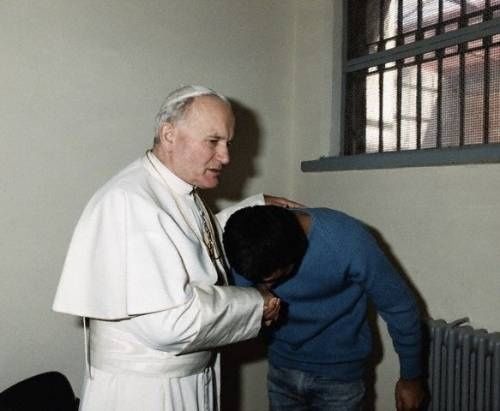
What if your pastor is trying to fill positions on the parish council, and one day while taking a walk, he comes across a stranger sitting on a park bench. Approaching the stranger who is not even a churchgoer, he invites the man to be a member of the council. The man agrees and follows the pastor back to the church to sign up. Imagine how shocked the people of the parish would be.
Today, the feast of St. Matthew, we learn that Jesus, in effect, did just this (Matthew 9:9-13).
“As Jesus passed by, he saw a man named Matthew sitting at the customs post. He said to him, ‘Follow me.’ And he got up and followed him.”
Imagine this! A holy rabbi is recruiting men who will one day take over his work. We’d assume he was looking for pious Jews, who never missed synagogue services, were respected in the community, and who had an eagerness to God’s work. Defying all norms, however, Jesus reached out to a tax-collector—an “unholy” man who was employed by the Roman governor to squeeze money out of the Jews.
“While he was at table in his house, many tax collectors and sinners came and sat with Jesus and his disciples.”
Matthew’s fellow tax collectors joined him at dinner to meet the new “Rabbi.” house to have dinner with him and the new “Rabbi.” Other outcasts in the town came as well. If Jesus was trying to destroy his own reputation with the Jews, he couldn’t have thought of a better way.
Meantime some Pharisees showed up and asked:
“Why does your teacher eat with tax collectors and sinners?”
A legitimate question. Isn’t God more interested in the “good people” who follow his laws and give financial support to the religious system?
Jesus overheard their question and explained,
“Those who are well do not need a physician, but the sick do. Go and learn the meaning of the words, ‘I desire mercy not sacrifice.’ I did not come to call the righteous but sinners.”
What if a doctor posted a sign saying, “Only healthy people are allowed in my office”? Jesus was a spiritual physician who came to forgive sins and connect man back to God. He came to attack the root of sin and provide a way for all to enter his Father’s kingdom. It is only fitting, then, that Jesus the divine physician seek out those who needed his help the most. Why waste his time on those who regarded themselves as “saved” and not in need of the mercy, forgiveness, and healing that God was sending the world through Jesus.
Jesus was not presenting a new version of God. This was the same God that had led people forth from Egypt and helped establish them as a nation. And, in revealing himself to the Israelites, he made it know that his primary focus was on mercy not religious observance. Surely the Bible-believing Pharisees would remember when God spoke through Hosea and said he desired mercy not sacrifice. Jesus was pouring out God’s mercy upon the outcasts because they were open to receiving it.
When we decide the follow Jesus, we join him in the “mercy business.” First, we pray daily: “Lord Jesus Christ, Son of God, have mercy on me a sinner.” And we ask Mary many times a day to “pray for us sinners now.” Then having been filled ourselves with God’s mercy, we take it out to the “sick” of the world.
“I did not come to call the just, but sinners” (Matthew 9:13).
